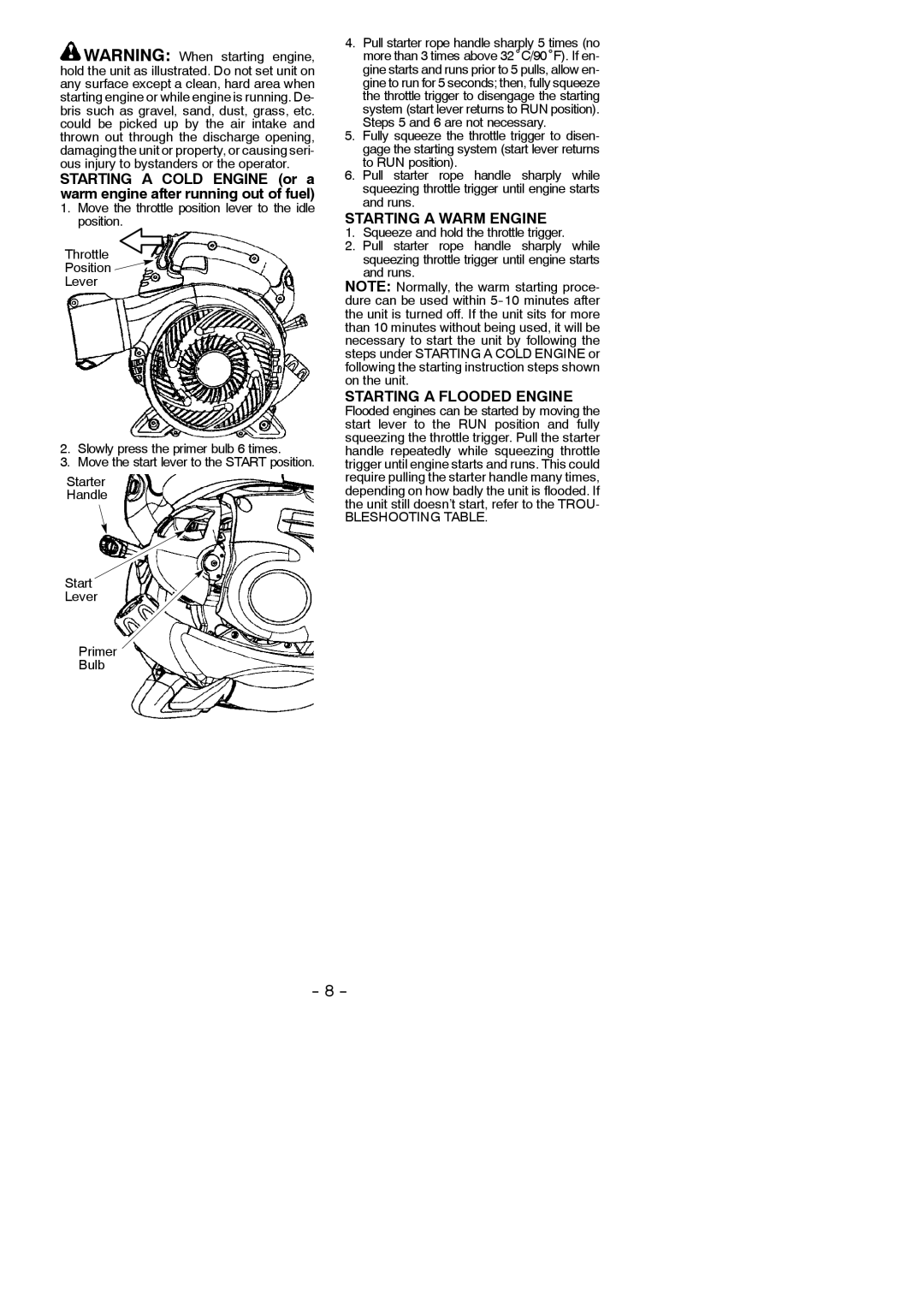
![]() WARNING: When starting engine, hold the unit as illustrated. Do not set unit on any surface except a clean, hard area when starting engine or while engine is running. De- bris such as gravel, sand, dust, grass, etc. could be picked up by the air intake and thrown out through the discharge opening, damaging the unit or property, or causing seri- ous injury to bystanders or the operator.
WARNING: When starting engine, hold the unit as illustrated. Do not set unit on any surface except a clean, hard area when starting engine or while engine is running. De- bris such as gravel, sand, dust, grass, etc. could be picked up by the air intake and thrown out through the discharge opening, damaging the unit or property, or causing seri- ous injury to bystanders or the operator.
STARTING A COLD ENGINE (or a warm engine after running out of fuel)
1.Move the throttle position lever to the idle position.
Throttle
Position ![]()
Lever
2.Slowly press the primer bulb 6 times.
3.Move the start lever to the START position.
Starter
Handle
Start
Lever
Primer
Bulb
4.Pull starter rope handle sharply 5 times (no more than 3 times above 32˚C/90˚F). If en- gine starts and runs prior to 5 pulls, allow en- gine to run for 5 seconds; then, fully squeeze the throttle trigger to disengage the starting system (start lever returns to RUN position). Steps 5 and 6 are not necessary.
5.Fully squeeze the throttle trigger to disen- gage the starting system (start lever returns to RUN position).
6.Pull starter rope handle sharply while squeezing throttle trigger until engine starts and runs.
STARTING A WARM ENGINE
1.Squeeze and hold the throttle trigger.
2.Pull starter rope handle sharply while squeezing throttle trigger until engine starts and runs.
NOTE: Normally, the warm starting proce- dure can be used within
STARTING A FLOODED ENGINE
Flooded engines can be started by moving the start lever to the RUN position and fully squeezing the throttle trigger. Pull the starter handle repeatedly while squeezing throttle trigger until engine starts and runs. This could require pulling the starter handle many times, depending on how badly the unit is flooded. If the unit still doesn’t start, refer to the TROU-
BLESHOOTING TABLE.
